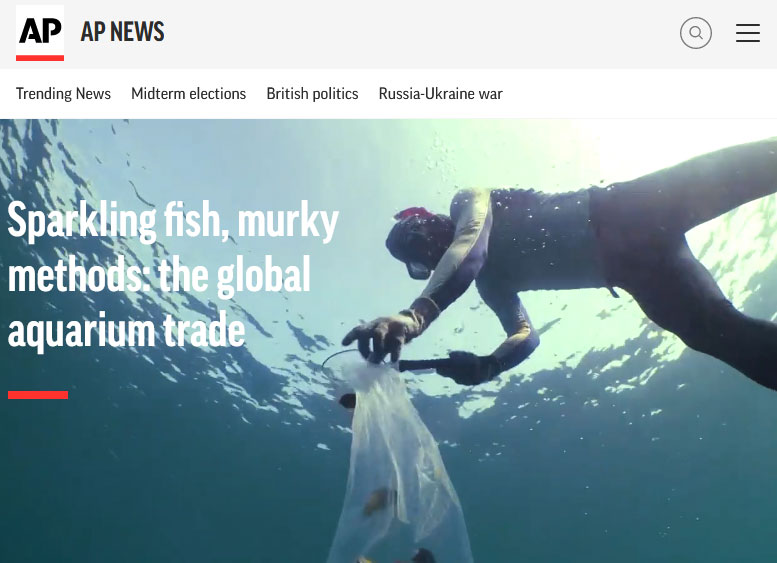
The report builds a case that wild collection of marine fishes for the aquarium trade is unregulated and with no standards for sustainability. A response from the Pet Advocacy Network, below, argues that progress is being made and that the AP article paints a distortedly pessimistic picture of the global aquarium fishery.
You can read the AP article here.
The Pet Advocacy Network, on behalf of the responsible aquarium industry, disputes the inaccurate picture the October 19 Associated Press story ‘Sparkling Fish, Murky Methods’ paints of the global aquarium trade.
First, responsible aquarium collectors stopped using cyanide in fish collection decades ago and the industry continues to invest significant time and money into legislative and educational efforts aimed at eliminating the practice worldwide. We are committed to ensuring a clean trade and invest in many organizations and outreach campaigns to support this goal, including LINI, the Bali-based nonprofit featured in the article.
The responsible aquarium trade is also driving considerable research to develop a cyanide field test that could be used to safeguard a clean trade closer to the point of collection. The article left out that Dr. Rhyne is not only a marine biology professor, but he is also a leading scientist in some of this research on methods to detect the use of cyanide in collected fish.
Additionally, recent scientific advances have made it far from ‘often impossible’ to breed and raise ornamental saltwater fish in captivity. In the past five years there has been a notable increase in the number of marine species that can be aquacultured. This purposeful cultivation is a sustainable complement to wild collection that has already reduced pressure on targeted species and threatened environments.
The aquatics industry long ago embraced responsible collection as the only path to a viable future for both the aquarium hobby and for the fishers and the local economies who depend on the trade. We support the efforts of governments, law enforcement, conservation organizations and all who join us in our goal of an ethical and sustainable aquarium trade.
###




